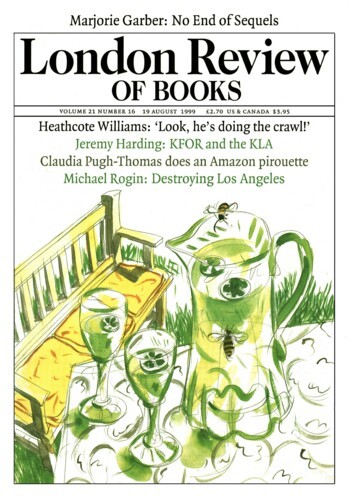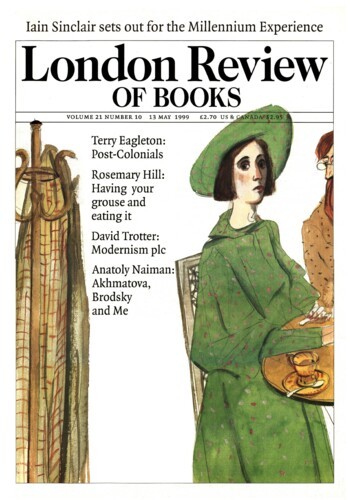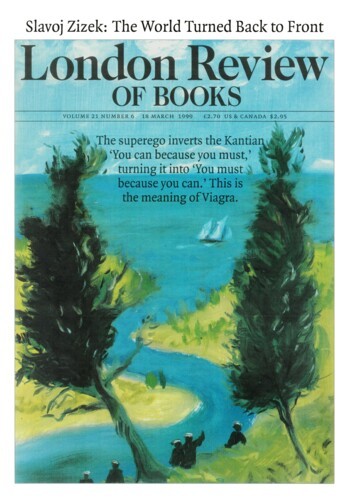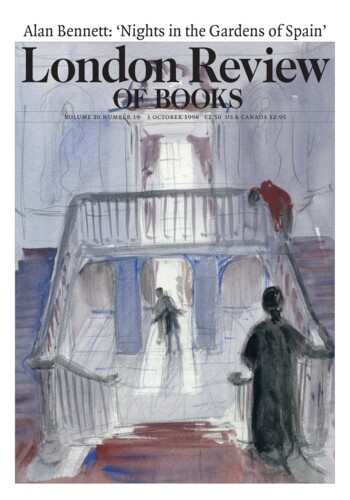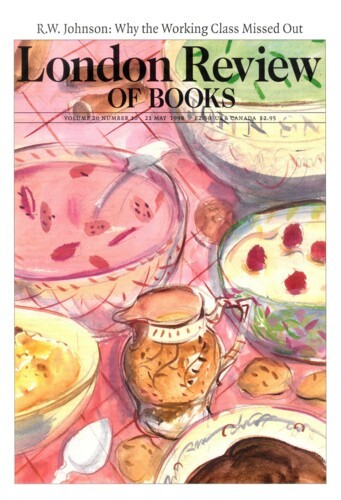Charles Simic
Charles Simic’s Come Closer and Listen: New Poems will be published next year.
Two Poems
Aleksandar Ristovic, translated by Charles Simic, 13 May 1999
We never even felt our share of the eternal in what was our life: the moments from which these bursts of activity and lethargy are made up, the similarity between here and there in inner and outer space. We exchanged life for its semblance, the object for its shadow, the visible coin for the invisible riches whose origins are unknown and whose value is ambiguous: the body for a wee...
A Suspect in the Eyes of Super-Patriots: Vasko Popa
Charles Simic, 18 March 1999
It may well be that the most interesting literature of this century cannot be subsumed under the broad label of Modernism or be said to have originated in the great literary centres, but was actually the work of outsiders and mavericks, starting with Kafka, who created something without precedent from a mix of native and foreign traditions. The poetry of Vasko Popa, who died in 1991, is of that eccentric company. He was the best-known Yugoslav poet of this century, and the most translated: his Selected Poems were first published by Penguin in 1969, as part of its series of modern European poets. Popa was then usually grouped with Zbigniew Herbert and Miroslav Holub, two other astonishingly original East European poets, whose work was plainly unlike anything being written in Britain and the United States. Encountering in Popa an exotic blend of avant-garde poetry and popular folklore, the foreign reader tends to think that this is what all poets from that part of the world must be like. In fact, no other Serbian poet sounds like Popa. He was both the product of his time and place and the inventor of his own world.
Three Poems
Charles Simic, 1 October 1998
I was drumming on my bald head with a pencil, Making a list of my sins. Well, not exactly. I was in bed smoking a cigar and reading In the Sunday papers about a Jesus-lookalike Who won a pie-eating contest in Texas.
Is there some unsuspected dignity to this foolishness? I inquired of the large stain on the ceiling. Is someone about to slip a note under my door Summoning...
Plato’s Gulag
21 May 1998
Pieces about Charles Simic in the LRB
Cheesespreadology
Ian Sansom, 7 March 1996
In a power-rhyming slap-happy parody of Thirties doom-mongering published in 1938 William Empson famously had ‘Just a Smack at Auden’: What was said by Marx, boys, what did he...
Read anywhere with the London Review of Books app, available now from the App Store for Apple devices, Google Play for Android devices and Amazon for your Kindle Fire.
Sign up to our newsletter
For highlights from the latest issue, our archive and the blog, as well as news, events and exclusive promotions.
